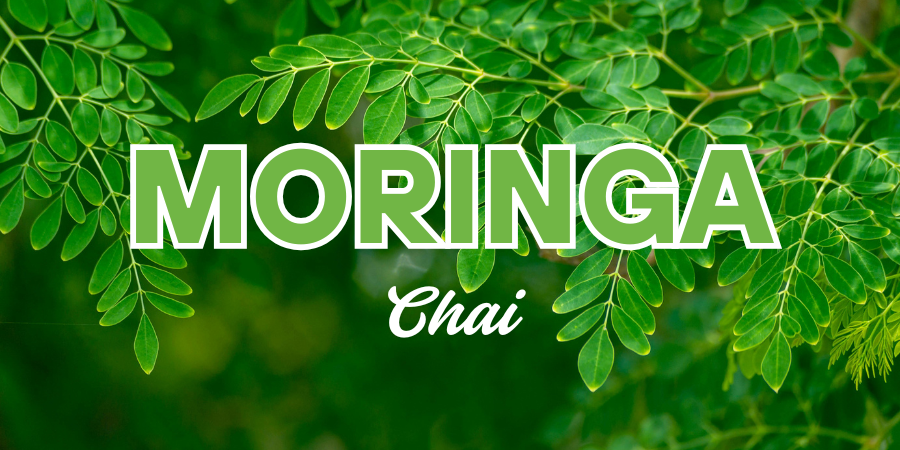My mother first introduced me to moringa tea during my school days in Pakistan, calling it her “secret to strength.” She would dry moringa leaves at home and steep them in hot water for a soothing caffeine-free drink. I later learned that moringa, also called the miracle tree, has many names across Asia like the drumstick tree, ben oil tree, and horseradish tree. It grows widely in India, Nepal, Indonesia, and even Oceania, Central America, and Africa.
The USDA lists moringa leaves as rich in vitamin A, vitamin B6, vitamin C, ascorbic acid, beta-carotene, amino acids, minerals, and high protein content, making it incredibly nutritious.
What Is Moringa?
Moringa, or moringa oleifera, is a fast-growing plant native to parts of Southeast Asia, especially India, and is widely grown in Pakistan, Philippines, and Taiwan. Known for its slender roots and long seed pods, or drumsticks, the plant is valued for both its medicinal and agricultural uses. The leaves, moringa roots, seed powder, and even moringa seed oil are used globally. In poor countries, it’s cultivated as a staple food, helping fight hunger and malnutrition. It’s drought-resistant, grows fast without needing to be fertilized, and even aids in water purification. From leaf powder to tea bags, moringa products are consumed in many cultural influences, offering both taste and nutrition.
Whether brewed from moringa leaf powder or raw moringa tea leaves, this herbal tea has a mild earthy flavor with astringent and bitter undertones, often softened with mint, honey, or cinnamon. Thanks to its resistance to high temperatures and long brewing times, it’s easy to prepare and enjoy anytime.
Health Benefits of Moringa Tea
Rich in Antioxidants
Moringa tea is packed with antioxidants like quercetin, vitamin C, chlorogenic acid, and beta-carotene. These compounds help fight free radicals and reduce oxidative stress, which is linked to conditions like heart disease, cancer, and Alzheimer’s disease.
Supports Immune Health
Research from both animal studies and human trials shows that moringa tea supports the immune system, helping the body fight illness naturally without the need for synthetic boosters.
Anti-Inflammatory Properties
Natural compounds such as isothiocyanates, phenolic glycosides, and other plant extracts in moringa tea have been noted for reducing chronic pain, inflammation, and even stroke risk, as highlighted by studies in Pharmaceutical Biology.
Regulates Blood Sugar and Pressure
Drinking moringa tea regularly may help lower high blood pressure and stabilize blood sugar levels, which is particularly helpful for individuals with existing heart conditions.
Protection Against Arsenic Toxicity
Environmental Toxicology research indicates that moringa has therapeutic effects against arsenic exposure, helping to balance cholesterol, triglycerides, glucose levels, and restore antioxidant markers like glutathione.
Aids Weight Loss
Moringa tea supports weight management due to its dense nutritional content, essential vitamins, and ability to improve body weight and nutritional balance in undernourished individuals.
Boosts Energy and Strength
Thanks to its rich profile of proteins, amino acids, minerals, and vitamins such as vitamin A, vitamin B6, and ascorbic acid, moringa tea naturally boosts energy levels and strengthens the body.
These benefits make moringa tea a powerful herbal tea for daily wellness, especially in areas of the world where access to nutritious foods is limited.
A simple cup a day doesn’t just refresh your body — it becomes part of a healthier, more mindful lifestyle.
Possible Side Effects of Moringa Tea
- May cause miscarriages or early contractions if consumed by pregnant women, especially due to compounds found in moringa rhizomes and flowers.
- Can interact with medications, especially those for heart conditions or blood pressure, because moringa leaves contain alkaloids that may affect heart rate.
- Might not be safe for nursing mothers without proper medical advice, as certain moringa products have not been fully studied in this context.
- The FDA does not regulate moringa supplements, so the purity and dosage of moringa leaf extract, moringa seed powder, or moringa powder can vary.
- Excessive consumption may lead to digestive issues such as abdominal pain, diarrhea, vomiting, or even organ failure in rare cases linked to high arsenic contamination.
- Consult a doctor or healthcare professional before use if you have chronic health issues, or take prescription medications regularly.
You can read the complete moringa tea recipe here!
read more about other recipes!
